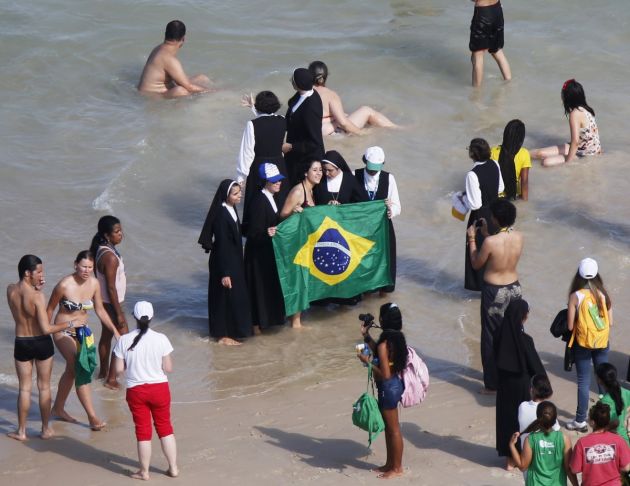Vatican opens historic debate on having married priests for Amazon region

The Vatican has opened debate on allowing married men to become priests in the Amazon, an unprecedented move that has triggered speculation it could pave the way for similar reforms in other parts of the world.
The Vatican formally opened debate on letting married men be ordained as priests in remote parts of the Amazon where priests are so few that Catholics can go weeks or months without attending a Mass, The Associated Press reported on June 17.
On its website the Vatican referred to the suggestion in an article headlined: Synod for the Amazon: 'Instrumentum Laboris' released.
It said, "The 'Instrumentum Laboris' (the Working Document) of the upcoming Special Assembly of the Synod of Bishops for the Pan-Amazonian Region is released in the Vatican.
It said the synod will take place from Oct. 6 to 27 on the theme "Amazonia: new paths for the Church and for an integral ecology."
At the heart of the Synod's working document "is the cry of the Amazon that asks the Church to be its ally in reaching out to everyone, especially to the poor, as they seek true fulfillment and human dignity in their lives."
The document was presented to the press on June 17, by the General Secretariat of the Synod of Bishops.
RESULT OF LISTENING PROCESS
"It is the result of a listening process that began with Pope Francis' visit to Puerto Maldonado in Peru, in January 2018, and continued with consultations throughout the Amazon Region and a Second Meeting of the Pre-Synodal Council last May," said Vatican News.
There is a drastic shortage of Catholic priests in the jungles, swamps and townships of the Amazon Basin, which is home to around 30 million people, millions of them indigenous, Britain's Daily Telegraph newspaper reported.
According the Vatican News, Amazonia, at the heart of South America, encompasses a region of 7.8 million square kilometers.
It includes territory that belongs to nine different nations: Brazil, Bolivia, Peru, Ecuador, Colombia, Venezuela, Guyana, Surinam and French Guyana.
Its 5.3 million square kilometer rainforest is the largest in the world and is an irreplaceable source of fresh water, oxygen and biodiversity for the planet.
To address the problem, the Vatican released its document in which it said the Catholic Church should consider allowing married men to become priests in remote areas.
"Affirming that celibacy is a gift for the Church, the Document states that, for the most remote areas of the region, the possibility of priestly ordination be studied for married men with families," said Vatican News.
"The clause, that aims to ensure the Sacraments that accompany and support Christian life, specifies that these men must preferably be indigenous elders who are respected and accepted by their community."
The move is believed to have the backing of Pope Francis, but it would compromise the Catholic Church's insistence that priests must be celibate, reported The Telegraph..
The issue of allowing married men to be ordained will be discussed at a synod in October
The idea will be put to a synod, or meeting of bishops, specifically dedicated to debating pastoral and environmental issues in the Amazon, due to be held in Rome in October.
Conservatives fear that the move, if adopted for the Amazon, would be the thin edge of the wedge, encouraging other parts of the Catholic world to ask for the same dispensation, The Telegraph reported.
"What is unprecedented is that this is the first time that the Vatican has proposed, in a synod document, that married men should be ordained," the newspaperr quoted Austen Ivereigh, a Vatican exper as saying.
Conservatives Catholics fear that the move, if adopted for the Amazon, would be the thin edge of the wedge, encouraging other parts of the Catholic world to ask for the same dispensation.
"What is unprecedented is that this is the first time that the Vatican has proposed, in a synod document, that married men should be ordained," Austen Ivereigh, a Vatican expert, told The Telegraph.
"It wouldn't establish a general rule, but of course there would be implications," said Ivereigh, the author of The Great Reformer: Francis and the making of a radical Pope. "It might be that bishops in rural parts of Europe, for instance, point to it as a precedent in future."